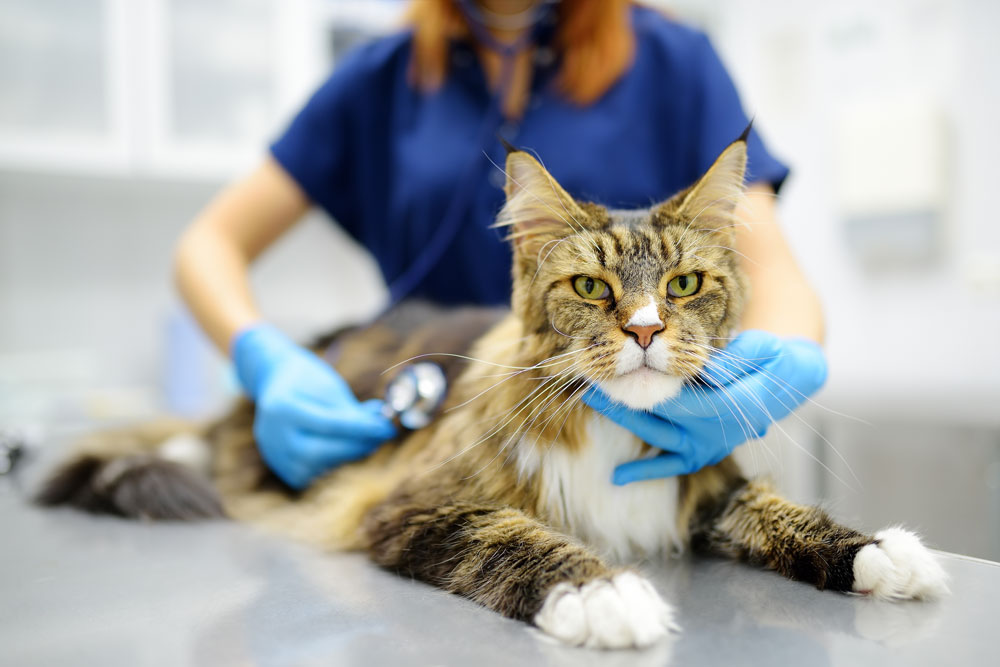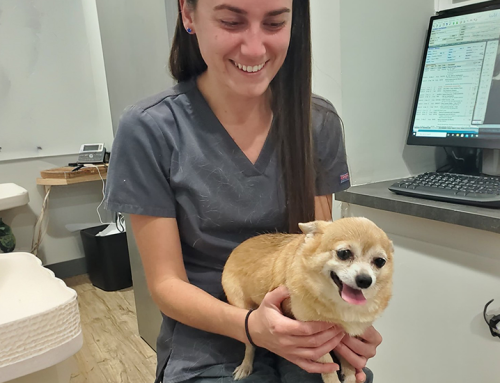Many health issues in pets develop silently, with few or no obvious symptoms in the early stages. That’s why routine wellness screenings play such a critical role in long-term care.
At Fort Mill Animal Hospital, we focus on prevention as a practical way to catch problems early, reduce the need for complex treatments, and support your pet’s health year after year. Annual health screens are a simple, effective tool to keep you informed and your pet thriving.
What Are Annual Health Screens?
Annual health screens are comprehensive, preventive checkups designed to assess your pet’s overall health- even when they seem perfectly fine. Unlike visits for specific symptoms, these wellness exams take a broad view of your pet’s condition, guided by their age, breed, and lifestyle.
The goal? To identify potential health concerns early- before they become serious.
What’s Included in an Annual Health Screen?
Our preventive health screens typically involve:
- A full physical exam: We check your pet’s weight, skin and coat, heart and lungs, joints, and overall condition.
- Diagnostic tests: Blood work, urinalysis, and fecal exams offer crucial insight into your pet’s internal health. These tests help detect infections, organ dysfunction, and metabolic disorders early.
Explore the types of veterinary medical tests that may be part of your pet’s wellness visit. - Lifestyle and care discussion: Based on what we find, we may recommend adjustments in nutrition, exercise, medications, or follow-up testing.
Why Annual Health Screens Are So Important
Even if your pet seems healthy, many conditions- like kidney disease, diabetes, thyroid imbalance, or arthritis- develop silently over time. Regular screens allow us to spot these changes before they impact your pet’s quality of life.
According to the American Animal Hospital Association, regular exams are key to extending your pet’s lifespan and improving their comfort as they age.
The Power of Early Detection
- Chronic kidney disease in cats often presents no symptoms until advanced- but can be detected early through blood and urine tests. Learn more from Cornell Feline Health Center.
- Hypothyroidism in dogs, a common hormonal condition, can be caught early with routine screening. Read about canine hypothyroidism.
The earlier we intervene, the more options we have- and the better your pet’s outcome.
What to Expect at Your Pet’s Health Screen
Your visit to Fort Mill Animal Hospital is designed to be smooth, informative, and low-stress for both you and your pet. Here’s what we typically include:
- Thorough physical exam
- Diagnostic testing: blood work, urinalysis, and/or fecal analysis
Why blood work matters
- Personalized care discussion based on results
Our team will walk you through everything we see and recommend- so you leave with a clear understanding of your pet’s health and any next steps.
Age-Specific Wellness Focus
We tailor every health screen to your pet’s life stage:
Puppies & Kittens
Early care focuses on growth, vaccines, parasite prevention, and developmental milestones. We’ll also guide you on nutrition, behavior, and socialization.
Adult Pets
Our goal is to maintain long-term health. We monitor for early signs of dental disease, joint issues, weight changes, and internal disorders.
Senior Pets
Older pets need more frequent monitoring- typically every six months. We focus on detecting age-related concerns like arthritis, thyroid issues, or feline hyperthyroidism early.
Read more about preventive testing for senior pets.
The Risks of Skipping Annual Screens
When health screens are missed, small issues can go unnoticed- and grow into major health problems.
- Undiagnosed diabetes can lead to nerve damage, vision loss, and life-threatening emergencies.
Learn more about diabetes in pets. - Untreated dental disease may affect organs beyond the mouth.
Catching and managing these conditions early leads to better outcomes and often lower costs over time.
At-Home Monitoring: Your Role Between Visits
You know your pet best. At-home monitoring is a vital part of preventive care. Watch for subtle signs like:
- Decreased appetite or energy
- Increased thirst or urination
- Lumps or skin changes
- Bad breath, limping, or behavioral shifts
For senior pets, use this guide to recognizing health issues as a helpful reference.
Tips to Prepare for Your Appointment
To get the most from your visit, we recommend bringing:
- A list of current medications or supplements
- A fresh fecal sample and urine sample (if requested)
- Any observations or concerns about changes in behavior, appetite, or mobility
- Previous medical records if you’re new to our clinic
Questions to consider asking:
- “Are there age-related risks I should be aware of?”
- “How do these test results compare to last year?”
- “What lifestyle adjustments would benefit my pet most right now?”

FAQs
My pet seems fine. Do they still need an annual health screen?
Yes. Many serious conditions show no visible symptoms in their early stages. Preventive care is about staying ahead of illness, not just reacting to it.
Are health screens expensive?
They’re typically much less costly than treating advanced illness. We’ll discuss options with you and prioritize what’s most important based on your pet’s needs.
What if my pet gets nervous at the vet?
We understand. Our team is trained in gentle handling techniques and low-stress care. Let us know- there are steps we can take to make your pet’s experience easier.
Your Partner in Lifelong Pet Wellness
At Fort Mill Animal Hospital, we’re more than your vet- we’re your partner in your pet’s health journey. Our team is here to provide guidance, compassion, and top-tier preventive care tailored to your pet’s unique needs.
Explore our team, or contact us to schedule your pet’s annual health screen today. Together, we’ll make sure your pet enjoys a lifetime of health, comfort, and happiness.







Leave A Comment